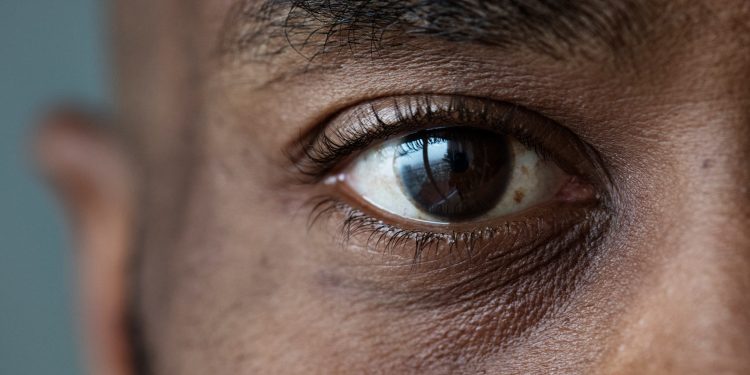Did you know that around 50+ million people in the United States have allergies?
Allergies are a common condition that can cause various symptoms such as sneezing, a runny nose, and itchy eyes. They occur when the immune system reacts to substances that are usually harmless, such as pollen or pet dander. While allergies are often associated with these common symptoms, many people wonder if allergies cause eye floaters.
In this article, we’ll explore the connection between allergies and eye floaters. Continue reading as we answer the question: can allergies cause eye floaters?
What are Eye Floaters?
Eye floaters are tiny spots or strands that appear in your field of vision. They can be transparent or dark and may move around when you try to focus on them. A black spot in vision is typically harmless but can be bothersome for some people.
The most common cause of eye floaters is aging. As we get older, the gel-like substance in our eyes shrinks and becomes more liquid. This allows small clumps of cells and protein to form and cast shadows on the retina, causing floaters.
However, eye floaters can also be a symptom of an underlying condition or disease. This is why it’s essential to see an eye doctor if you notice an increase in floaters.
Can Allergies Cause Eye Floaters
While allergies can cause swelling and irritation in the eyes, there is no direct link between allergies and eye floaters. However, some people with allergies may experience an increase in floaters due to eye strain.
When allergies cause your eyes to become red, itchy, and watery, you may rub them frequently. This can put added pressure on the eyes and cause them to become strained. As a result, you may notice an increase in eye floaters.
Additionally, if you have severe allergies that affect your sinuses, this can also indirectly impact your eyes. Pressure and swelling in the sinuses can cause pressure in the eye, which may result in floaters.
Managing Eye Floaters Caused by Allergies
If you have allergies and are experiencing an increase in eye floaters, there are a few things you can do to manage them:
Use Over-The-Counter Allergy Medications
If you have seasonal allergies, over-the-counter antihistamines or decongestants can help reduce your symptoms. This may also alleviate the strain on your eyes and decrease the number of floaters you see.
Avoid Rubbing Your Eyes
As tempting as it may be to rub your eyes when they feel itchy or irritated, try to avoid doing so. Rubbing your eyes can put added strain on them and may worsen your eye floaters.
Use Eye Drops
Artificial tears or lubricating eye drops can help soothe dry, itchy eyes caused by allergies. This may also decrease the urge to rub your eyes and prevent any additional strain.
Consult an Eye Doctor
If you are concerned about your eye floaters or experience other concerning symptoms, it’s important to consult an eye doctor. They can perform a comprehensive eye exam and determine the underlying cause of your floaters.
Unlocking the Truth About Eye Floaters and Allergies
Can allergies cause eye floaters? While allergies may indirectly affect eye floaters, there is no direct link between the two. However, if you have allergies and experience an increase in floaters, it’s important to take steps to manage them and consult a doctor if needed.
Remember, taking care of your eye health is crucial for maintaining good vision. Don’t let allergies affect your vision – take control of your eye health today!
If you enjoyed this article, check out our other articles for more information.


 Home
Home









